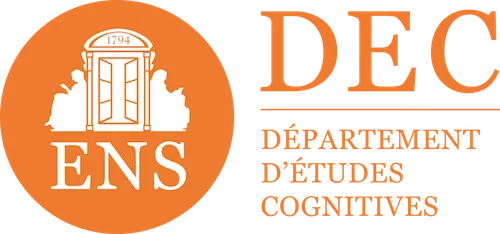

CFPC & Didask: combining the speed and impact of e-learning thanks to educational AI
The Training Center for the Accounting Profession (CFPC) plays a key role in the training of accountants and their employees in France. Faced with the major and rapid changes in their professions, the CFPC adopted Didask and its Educational AI to meet its training challenges... and the results obtained are impressive!
Laurent Benoudiz (Vice President of the National Council of the Order of Chartered Accountants), Philippe Barré (chartered accountant & educational consultant) and Ludovic Melot (partner at b-ready, consultant, designer and training facilitator) tell us about their experience with Didask.
Interview
Q: What is the CFPC and what is its role in the accounting profession?
Laurent Benoudiz: The CFPC is the educational engineering center for the accounting profession. This is where we design all the training courses that are then offered to IRFs, which are the regional training institutes, which distribute them in the regions.
Q: What are the current challenges for the accounting profession in terms of training?
L.B: There are a lot of challenges for the profession, especially with regard to the evolution of technologies, with digital technology, the arrival of artificial intelligence. Electronic invoicing will be an accelerator of all these transformations. It is absolutely essential that we succeed in developing accountants and their employees, bringing them towards customer support, towards other professions. This requires an absolutely incredible investment in training for all these firms.
Q: Can you tell us about the challenges you were facing before discovering Didask?
Philippe Barré: We had a training challenge that was almost insurmountable, with a hundred days of training, five years of experience, dozens of designers, thousands of participants. Thanks to artificial intelligence in Didask, we got there.
Q: What attracted you to the Didask platform?
P.B: Didask was an extremely attractive platform because they were not in order to create PowerPoint online, they said to themselves, “How do people understand something? How do they learn? What will make it possible to learn sustainably, to anchor learning?” And as a result, they deduced the teaching techniques that needed to be implemented. This was very different from the other platforms I had seen, which were more or less broadcast platforms, Netflix from the band. With Didask, this is not the case at all: we are really on the understanding of intellectual and pedagogical methods adapted to the messages to be transmitted.
The advantage of Didask is also to learn the profession. Thanks to the questions asked by their AI, we are not simply validating knowledge, we are transforming them into skills.
Q: How did you get started with The Didask tool by your training designers?
Ludovic Meulot: Getting started with the tool is quite intuitive and quite simple. Training designers fill out a document with their skills and expertise. The machine produces the questions by integrating Didask's educational constraints. Then, all that's left to do is reread by the expert. It was a magical thing!
Q: What benefits have you seen with Didask in terms of costs and flexibility?
L.B.: Didask allows us to increase the number of training courses. Employees can train remotely, on their phone or computer, and at any time. This allows you to be much more flexible and à la carte. Before, we used to have systems where each training course was necessarily face-to-face and therefore incurs significant costs. Here, the investment we are making in the design of training courses on Didask allows us to train employees first remotely in asynchronous mode, then we combine this with a face-to-face day where we only do simulations, case studies, group work.
Q: What is the feedback from participants after taking Didask training courses?
L.M.: We have received quite extraordinary feedback, from traditional accounting employees who all of a sudden have more supportive positions, from business managers, they have real confidence in themselves. We see it in their eyes: they are doing things that they would never have thought of 4, 5, 6 months before. In the end, Didask courses are really put into practice in real life.
P.B. : The training courses with Didask have been revolutionary. Business leaders told us: “employees have come back transformed! ”.
Q: What results did you get with Didask?
P.B.: The best success story was when accounting firms started looking primarily for collaborators who had completed our training with Didask. We managed to train 1,400 people who completed 8,000 days of training in less than 6 months. There are 95%, or even 96%, of participants who are satisfied and who recommend our courses.
Q: What are your future goals with Didask?
P.B.: This is only the beginning, since in the accounting profession, we have 170,000 employees, of whom we estimate that 60 to 80% will have to change jobs in the coming years. Thanks to Didask, we know that we can do it, that we can train a lot of people, that this type of training effectively makes it possible to transmit the right knowledge and to acquire the skills necessary for the development of employees. From a qualitative point of view, we know that we have found the right solution.
Also discover our interview with Pellenc How Pellenc is revolutionizing its e-learning thanks to AI and the Didask LMS!
To go further on the theme of AI in e-learning, I recommend our following articles:
Make an appointment directly with our eLearning experts for a demo or simply more information.
.png)











